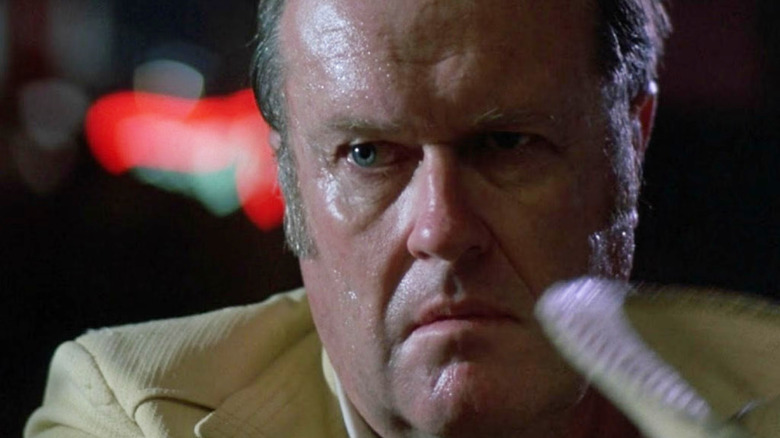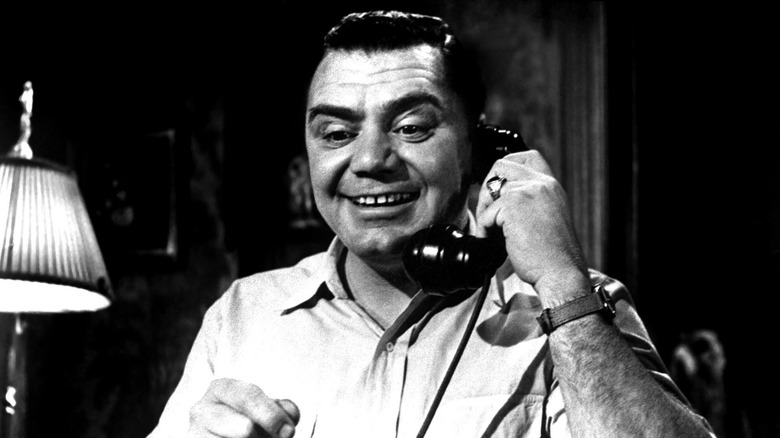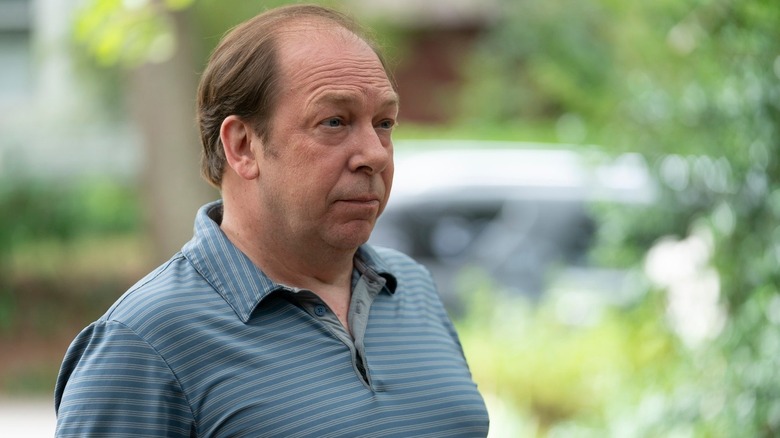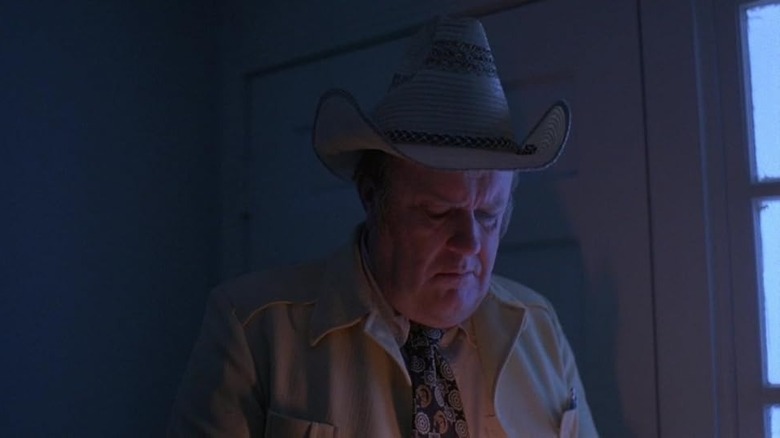What Exactly Is A Character Actor? Defining An Often Misunderstood Term
Any kid who ever dreamed of striding the boards, meticulously prepping for their glamorous on-camera close-up, or adorning the walls of teenagers all over the world as the most fetching heartthrob on the planet, did not entertain for a second that steady work as less-than-studly screen presence like M Emmet Walsh could be its own gloriously gruff reward. If you were born with a face that looked like it went 12 rounds with Sonny Liston before exiting the birth canal, or walked in heels like they were a pair of Carhartts, you're probably destined to be a working stiff like the rest of us for the remainder of your life.
And there is dignity in this. There is meaning. And not to get your hopes up too high, but if you can strut across the stage like you were born to it, hold the gaze of a camera, or fire off one-liners with buffoonish aplomb, you don't have to be Cary Grant, Michelle Pfeiffer, or Denzel Washington to have a long and prosperous career in the performing arts.
Because you, my friend, can be a character actor.
If you're even a casual movie fan, you've heard this term before, and, on first blush, it might make a lick of sense. M Emmet Walsh couldn't do it all, but he could play with deeply-lived-in ease a twisted detective ("Blood Simple"), a diving team coach ("Back to School"), and a recovering addict/sponsor ("Clean and Sober"). Roger Ebert had a rule that no movie with Walsh and/or Harry Dean Stanton could be devoid of value. "Wild Wild West" broke that streak for Roger, which raises the question: did the legendary critic ever see "Raise the Titanic?" (He did, and he inexplicably gave this snoozer of an action flick two-and-a-half stars.)
What I do know is that M Emmet Walsh was a character actor. The platonic ideal even. Where I get a little hazy is in determining who can be a character actor and a star at the same time, and who started their career as a star before aging into character roles (or, in rare cases, vice versa). There's a Wikipedia page that endeavors to make these distinctions, and it is utterly useless. So, let us boldly go forth and cobble together a workable definition for the Hollywood character actor (particularly of the Hollywood variety).
The Borgnine paradox
Where to start? How about Delbert Mann's "Marty," the 1955 Bronx romance about a lonely, likable butcher with a face only a mother and the five women married to Ernest Borgnine (including Ethel Merman) could love. Borgnine won the Best Actor Oscar for his performance here, mainly because it was out of character. Two years prior, he'd fatally stabbed Frank Sinatra in "From Here to Eternity;" the next year, he played a racist who gets whupped by a one-armed Spencer Tracy in "Bad Day at Black Rock." Borgnine played hard, sometimes cruel men — which contrasted with his 10 years of service in the U.S. Navy before and during World War II. Borgnine's story was first-rate Hollywood PR.
But Borgnine was no George Raft. He wasn't suave, nor was he ruggedly handsome. He couldn't don a tux and woo Carole Lombard, nor could he mount a horse and send hearts a-fluttering as he faced down Walter Brennan and the Clantons. But there was a leading role for him; it just took Paddy Chayefsky ("Network") to write it.
Thus concludes the Borgnine paradox. The man was a character actor through and through who found a role only he could play to such sentimental perfection.
Now let's separate the stars from the pluggers
Stars bring in the financing
I'm tempted to use the term "chameleon" here, but some of the biggest stars in the history of the film industry are shapeshifters. Meryl Streep ("Sophie's Choice," "Postcards from the Edge," "The Devil Wears Prada"), Dustin Hoffman ("The Graduate," "Lenny," "Tootsie") and Daniel Day-Lewis ("My Left Foot," "The Ballad of Jack and Rose," "There Will Be Blood") rarely repeat themselves. The primary difference between this trio and your typical assortment of character actors is that those aforementioned movies wouldn't get made without their involvement.
In a perfect world, casting Richard E. Grant as a jovial drunk dying of AIDS in "Can You Ever Forgive Me" would loosen all the necessary pursestrings; Beanie Feldstein as a wildly vindictive ex in "Drive-Away Dolls" would give the filmmakers a wide array of options (not that they didn't nail it); and if you cast Bill Camp in anything, you are due a $100 million budget. At minimum. And a preemptive Oscar. And monarchical control of Liechtenstein.
Do I think the three actors in the first paragraph are better performers than those in the second? As long as the casting is on point, I don't care about "better" when it comes to acting, and neither should you. I care about watching fabulously gifted thespians work their well-honed magic, and, in many cases, I derive the most pleasure from watching character actors.
Our celebration of character actors has just begun
Once more unto the subject of M Emmet Walsh. Why? Because if you ask a random cinephile who knows his doo-doo, they'll aver that there has never been a scuzzier, scarier, more vicious private dick than Loren Visser. The Coens love Jim Thompson, but they've never captured the pulp author's aesthetic with such malevolent glee. Is it on the page? Yeah. Is it also one of the best performances I've ever seen? Unquestionably.
I'm writing an accompanying piece to this where I'm going to name my favorite character actors, and I'm likely going to piss off a lot of folks (in an affectionate way because we dig these guys — except O.J. Simpson). Was Robert Ryan a character actor? Later in his career, yes. Eugene Pallette? I'd say he was more of a type. Was Paul Gleason a type? Stephen McKinley Henderson is not a type. Ditto Margo Martindale.
The overall purpose here is to shine a spotlight on hundreds of unique actors who occasionally get their due, but often take a back seat to the stars. There are so, so many brilliant character actors who've never been nominated for an award, much less won one. So let's love 'em up as best we can.



